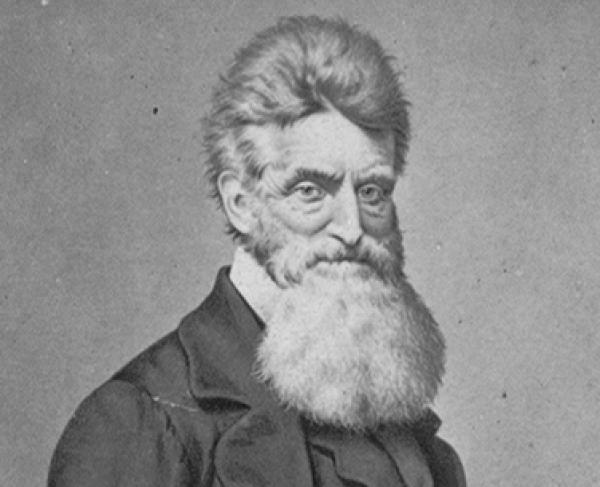The person that won the presidential election of 1860.
Who is Abraham Lincoln?
The political party that Abraham Lincoln was associated with.
What is the Republican Party?
Compromise that enacted the Fugitive Slave Act.
What is the Compromise of 1850?
This man.

Who is John Brown?
The place the Civil War started.
What is Fort Sumter?
Who is Harriet Beecher Stowe?
This political party, along with Northern Democrats, became the Republican party.
What is the Whig Party?
The way Kansas and Nebraska decided the issue of slavery within their territories.
What is popular sovereignty?
The man who was caned in the middle of the US Senate after giving a long speech about Kansas that criticized one of his opponents.
Who is Charles Sumner?
List some of the reasons of the Mexican-American War.
What is Texas annexation, boundary dispute, California question, monetary claims against Mexico, and the idea of Manifest Destiny.
Proposed the Missouri Compromise and Compromise of 1850.
Political party that favored agriculture and supported expansion and taking land from Mexico.
What is the Democratic Party?
Name of the geographical division created by the Missouri Compromise that limited the expansion of slavery.
What is the 36'30" Line?
What is the decision that no African American could be considered a citizen of the US?
The reason the Compromise of 1850 was agreed upon.
The Compromise of 1850 was agreed to attempt to solve the ongoing question of slavery and the splits it was causing in the country. The specific need for a compromise in 1850 had been caused by the issues raised by the Mexican American war.
Broke up the Compromise of 1850 into five bills and proposed the Kansas-Nebraska Act.
Who is Stephen Douglas?
Stephen Douglas and Abraham Lincoln engaged in a series of debates to win the Senate seat. The winner of the debates and Senate seat.
Who is Stephen Douglas?
Two stated that the Missouri Compromise admitted into the Union.
What are Maine and Missouri?
The outcome of the Treaty of Guadalupe Hidalgo.
What is upper California and New Mexico gained by the US?
"The election of Lincoln was the reason the Civil War started", how far do you agree with this statement.
On 12 April 1861 Confederate shore batteries under General P.G.T. Beauregard opened fire on Union-held Fort Sumter in South Carolina’s Charleston Bay. During the next 34 hours, 50 Confederate guns and mortars launched more than 4,000 rounds at the poorly supplied fort. On April 13, U.S. Major Robert Anderson surrendered the fort. Two days later, U.S. President Abraham Lincoln issued a proclamation calling for 75,000 volunteer soldiers to quell the Southern “insurrection.”
Possible discussion of the questions: states seceding after his election, Bleeding Kansas, Dred Scott, state' rights, etc
American president during the Mexican-American war and was a strong supporter of expansion.
Who is James K. Polk?
The reason Lincoln was able to win the election, despite only getting 39.7 percent of the popular vote.
What is the splitting of Democrats between Stephen Douglas and John C. Breckinridge?
Three of the five bills that were passed after the Compromise of 1850 was broken down into individual bills.
What is the Fugitive Slave Act, Texas agreed to give up some of its land for U.S. to settle their debt, no restrictions on slavery in Utah and New Mexico territories, abolition of the slave trade in Washington D.C., and California admitted as a slave state?
Proposition that slavery would not be permitted in any land gained by Mexico. Not passed by Congress.
What is the Wilmot Proivso?
To what extent was the growing strength of abolitionism the reason for Lincoln’s victory in the 1860 presidential election?
The growth in abolitionist feeling in the Northern states was clearly important to the political situation of the late 1850s. Many had been radicalised by the horrors of Bleeding Kansas earlier in the decade and supported extreme abolitionist positions. After John Brown’s raid on Harper’s Ferry there were those in the North that celebrated him as a martyr although many also condemned his actions. However, this did not mean that abolitionists flocked to Lincoln as a candidate. Lincoln was clearly against slavery, but he was not in favour of its rapid and total abolition. Many abolitionists questioned whether Lincoln was really a man they could vote for or whether they should wait for a candidate that was a pure abolitionist. The Annual Report of the American Anti-Slavery Society [AASS] considered Lincoln ‘a good enough Republican for the party’s purposes, but far from being the man for the country’s need.